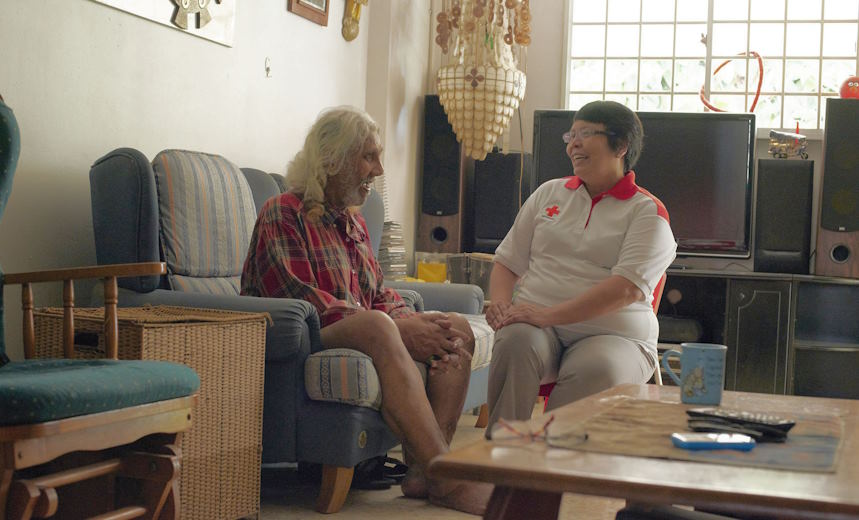A Guide to Choosing the Right Assisted Living Facility for Your Loved Ones
As our loved ones age, ensuring their safety, well-being, and
Read more...
In the heart of every community, senior care settings serve as a haven for our beloved elders, providing comfort, companionship, and specialized care. Volunteering in these settings offers a unique opportunity to make a profound difference in the lives of those who have paved the way for future generations. While the experience can be immensely rewarding, it is not without its challenges. As volunteers, we encounter various hurdles, from navigating emotional complexities to addressing behavioral issues. However, armed with the right knowledge and compassionate approach, these obstacles can be surmounted.
Volunteering in senior care settings offers an intimate glimpse into the aging process, which can be both heartwarming and emotionally challenging. Witnessing the physical and cognitive changes that seniors experience may evoke feelings of empathy, but it can also force us to confront our own mortality. It’s essential to recognize that such emotions are entirely normal and part of the human experience. To cope with these feelings, volunteers must adopt a mindful perspective and appreciate the unique wisdom that comes with age. Engaging in meaningful conversations with seniors about their life experiences can be surprisingly enlightening and help foster a sense of purpose in volunteers, transcending the fear of aging.
Volunteering in senior care settings can be emotionally demanding, as volunteers form deep connections with residents and may witness the struggles they face. Feelings of sadness, helplessness, or frustration may arise when confronted with seniors’ health challenges or emotional distress. To manage these emotions, it’s crucial for volunteers to practice self-compassion and understand that they cannot solve all problems. Taking time for self-care, such as engaging in hobbies or seeking emotional support from friends and family, can help volunteers recharge and maintain emotional resilience. Additionally, volunteering organizations should prioritize providing regular opportunities for volunteers to debrief and share their feelings, fostering a supportive community that understands and empathizes with their experiences.

In the tapestry of senior care settings, each resident brings a unique life story woven with diverse cultural backgrounds and experiences. As volunteers, it is essential to recognize and appreciate this rich diversity to create an inclusive and compassionate environment. Taking the time to learn about residents’ cultural traditions, preferences, and beliefs can foster a deeper connection and show respect for their individuality. By celebrating these differences, volunteers can create a sense of belonging for residents and help them maintain their identity, even in the midst of a new living environment. Embracing cultural sensitivity enables volunteers to provide personalized care that not only meets physical needs but also nurtures the soul and spirit of the seniors they serve.
Seniors in care settings may face various physical and cognitive limitations, which can impact their ability to engage fully in daily activities. As volunteers, it is crucial to be patient, understanding, and adaptive in providing assistance. Simple modifications, such as using larger print materials or offering mobility aids, can significantly enhance seniors’ independence and quality of life. When engaging in activities, volunteers should tailor them to suit individual capabilities, ensuring that everyone can participate and feel valued. Being attuned to non-verbal cues and actively listening to residents’ needs allows volunteers to provide meaningful support, promoting a sense of autonomy and dignity for each senior.

While volunteering in senior care settings can be incredibly rewarding, it comes with its fair share of behavioral challenges. Seniors may exhibit various behavioral issues, including agitation, confusion, aggression, or withdrawal. These behaviors can stem from a range of factors, such as cognitive decline, unfamiliar surroundings, or unmet emotional needs. As volunteers, it is crucial to educate ourselves about these common challenges to approach them with empathy and understanding. By recognizing that these behaviors are often a means of communication, we can avoid taking them personally and focus on providing the necessary support and care that seniors need.
When confronted with challenging behaviors, de-escalation techniques play a vital role in maintaining a safe and calm environment for both seniors and volunteers. Remaining composed and composed, using a soothing tone, and validating the seniors’ feelings are effective de-escalation strategies. Offering reassurance and redirection can help redirect their attention from distressing thoughts. Additionally, creating a calming atmosphere through soft music or engaging in familiar activities can help seniors relax and feel more at ease. The key is to approach challenging situations with patience, compassion, and a problem-solving mindset, aiming to prevent escalation and de-escalate any existing tension.
Sign up for our newsletter to receive the latest updates, heartwarming stories, and valuable resources on elderly care and community assistance. Join our compassionate community of caregivers, volunteers, and advocates, and be a part of the positive change we're making together.